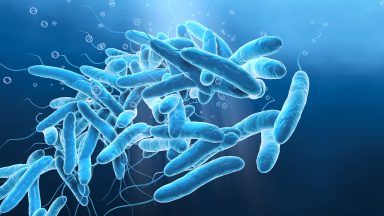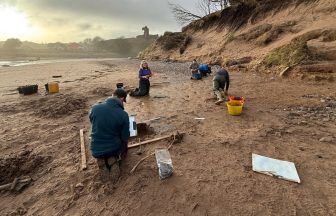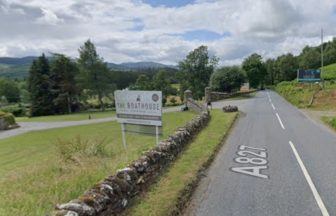A dead basking shark which washed up on a beach in Moray was found with plastic in its stomach.
The fish, which was more than 4m (13ft) long, was discovered washed up at Portgordon, near Buckie last week.
The stranding was first reported to the Scottish Marine Animal Stranding Scheme, which asked for volunteers to go to the scene.
Chris Rickard and Lauren Smith, co-founders of Shark and Skate Scotland, attended the scene and carried out a necropsy on Saturday.
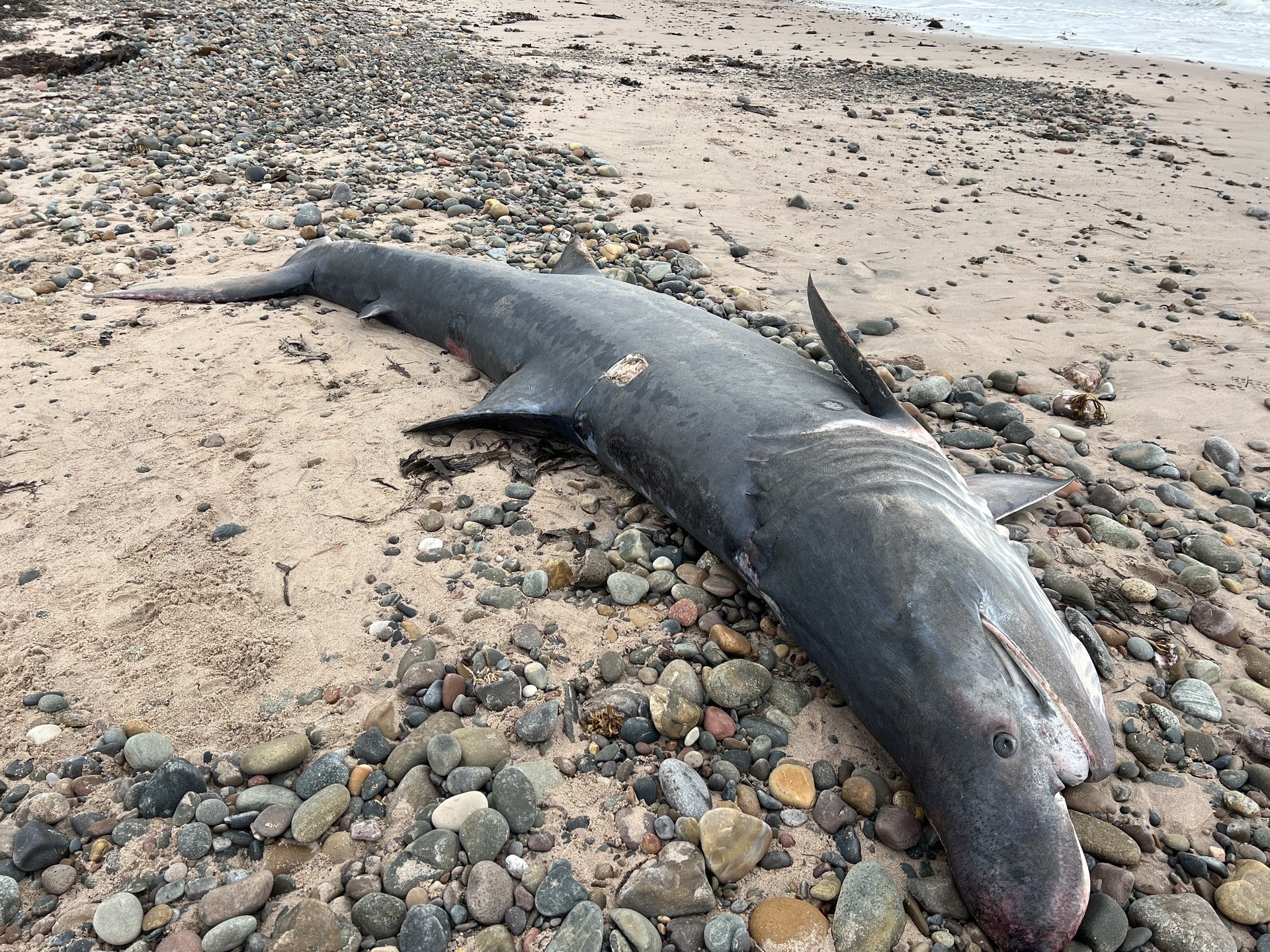 Shark and Skate Scotland
Shark and Skate ScotlandDuring the examination, the team found there was no obvious cause of death but did discover a small piece of plastic that had been recently ingested.
Ms Smith, a marine biologist, said finding the small fragment of plastic was “not surprising” and it was likely the shark had also ingested microplastics.
“The fragment was about 3cm. From what we saw, the shark’s organs seemed in good condition, there was no physical damage and it had been feeding recently,” she told STV News.
Chris Rickard added: “The plastic was a recent ingestion. Microplastics have been found in plankton so it would’ve been ingesting plastics for a while, and an animal thats been ingesting plastic for a while isn’t going to be in the best of health but there’s nothing to suggest it was the cause.”
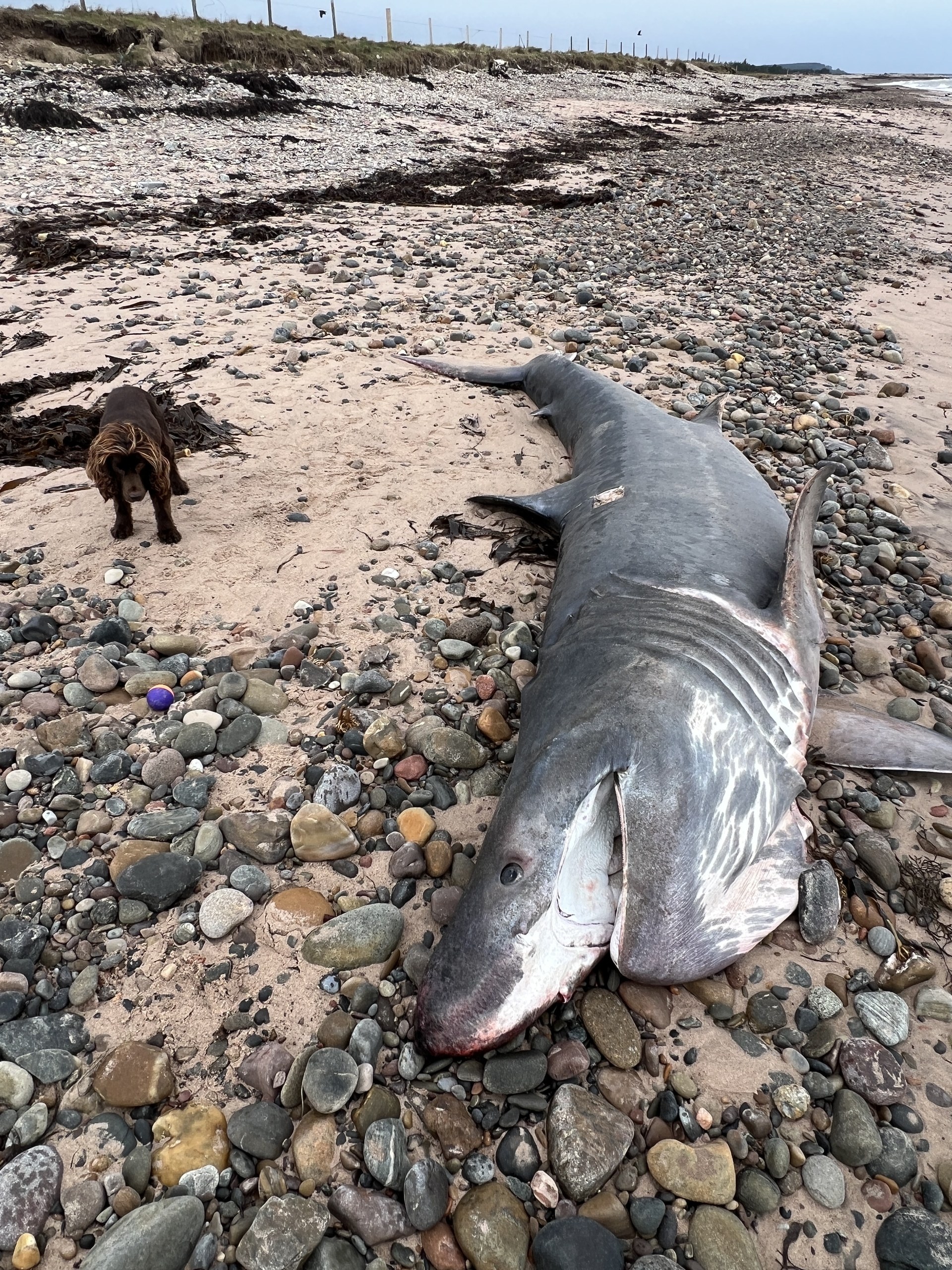 Shark and Skate Scotland
Shark and Skate ScotlandThe duo were unable to turn the shark over due to its size, but said there were no obvious physical injuries other than scrapes from being washed up.
As for what could have been a contributing factor to its death, Ms Smith said there were many factors.
“Over-fishing is the biggest threat to basking sharks worldwide. But it could’ve just been a sick shark, they get viral illnesses and such, so it could’ve just been as simple as that,” she said.
Mr Rickard added that climate change could be factor but said fish, basking sharks included, will move if they need to.
“If the waters get too warm, or the food has moved, they will move too. It’s why there’s been an increase in sightings on the east coast,” he said.
Basking sharks, which are the world’s second-largest species of fish after whale sharks, gather off Scotland’s west coast from May to October to breed and feed on plankton.
The stranding comes amid an increase in reports across Scotland.
However, Mr Rickard said the increase in reports doesn’t necessarily mean an increase overall.
“Basking sharks are in decline, but I think we’re hearing about strandings more often because the public is more aware.”
He added: “Social media has played a big part; people will walk on remote beaches and share the findings on social media to determine what it is.”
Follow STV News on WhatsApp
Scan the QR code on your mobile device for all the latest news from around the country


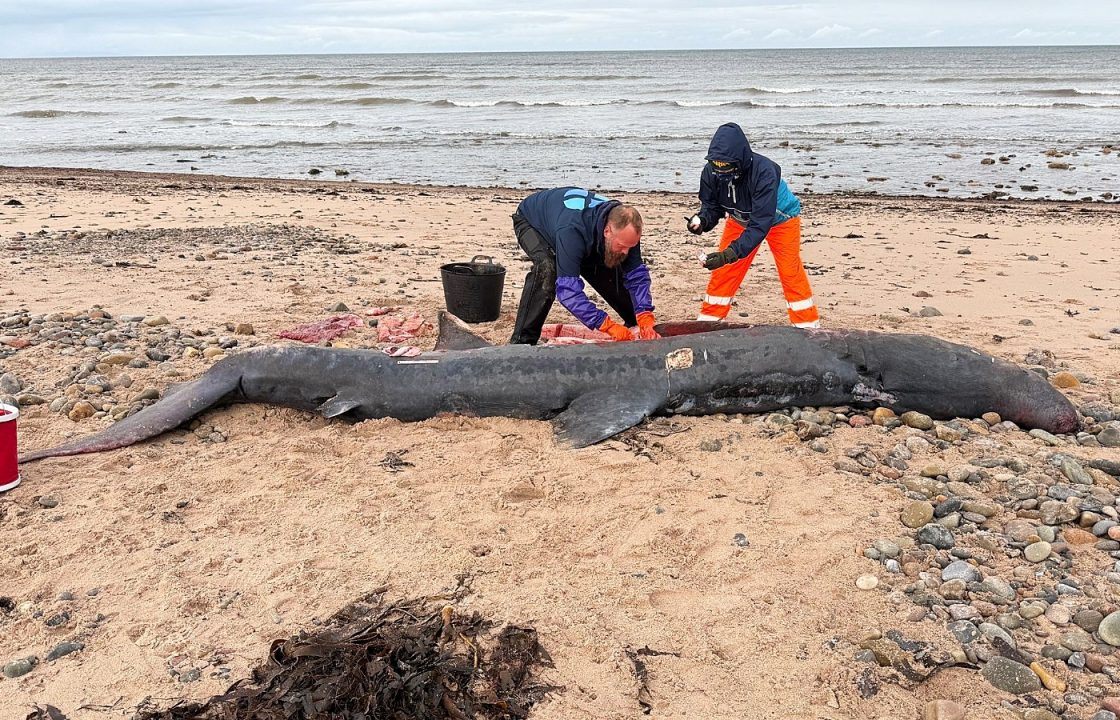 Shark and Skate Scotland
Shark and Skate Scotland







